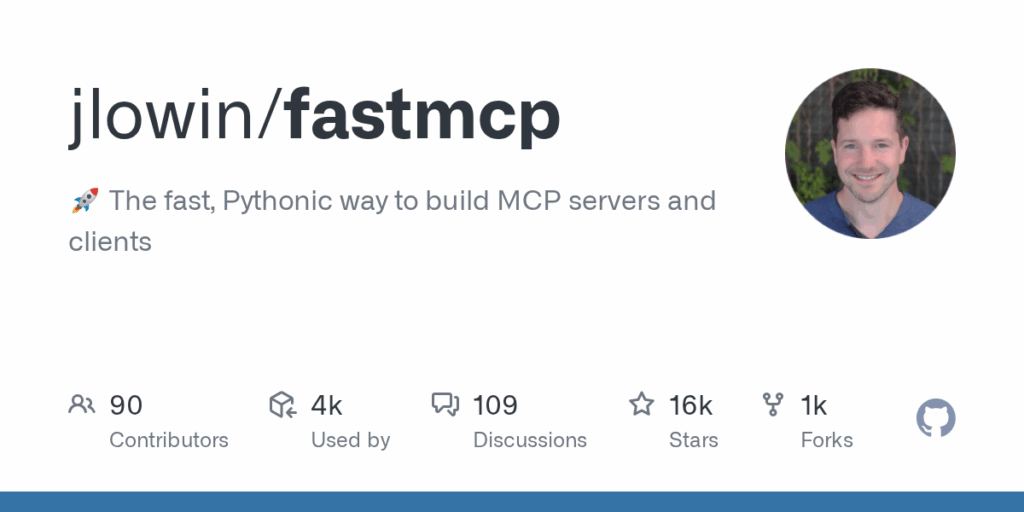fastmcp
Basic Information
FastMCP is a Python framework and toolkit for building, running, and interacting with Model Context Protocol (MCP) servers and clients. It implements MCP idioms such as Tools, Resources, Prompts, and Context to expose data and functionality to LLM applications. The project targets both development and production use by providing a FastMCP server object, decorators to register tools/resources/prompts, a client library with multiple transports, and utilities for deployment, authentication, testing, and integration. Version 2.0 extends the original MCP SDK capabilities with features like proxying, server composition, OpenAPI and FastAPI generation, dynamic media helpers, and in-memory transports for efficient testing. The repo includes documentation, examples, a comprehensive test suite, and setup instructions to help developers create secure, production-ready MCP services quickly and with minimal boilerplate.








